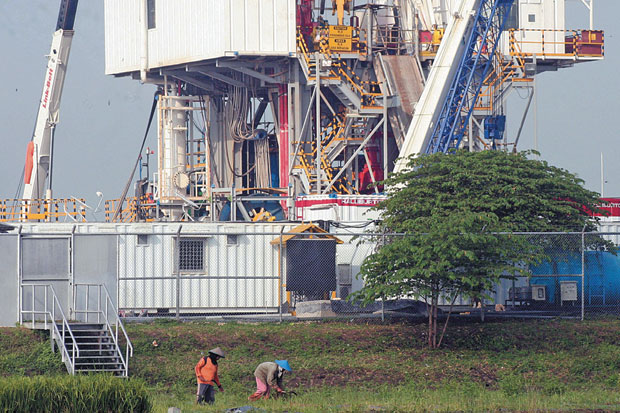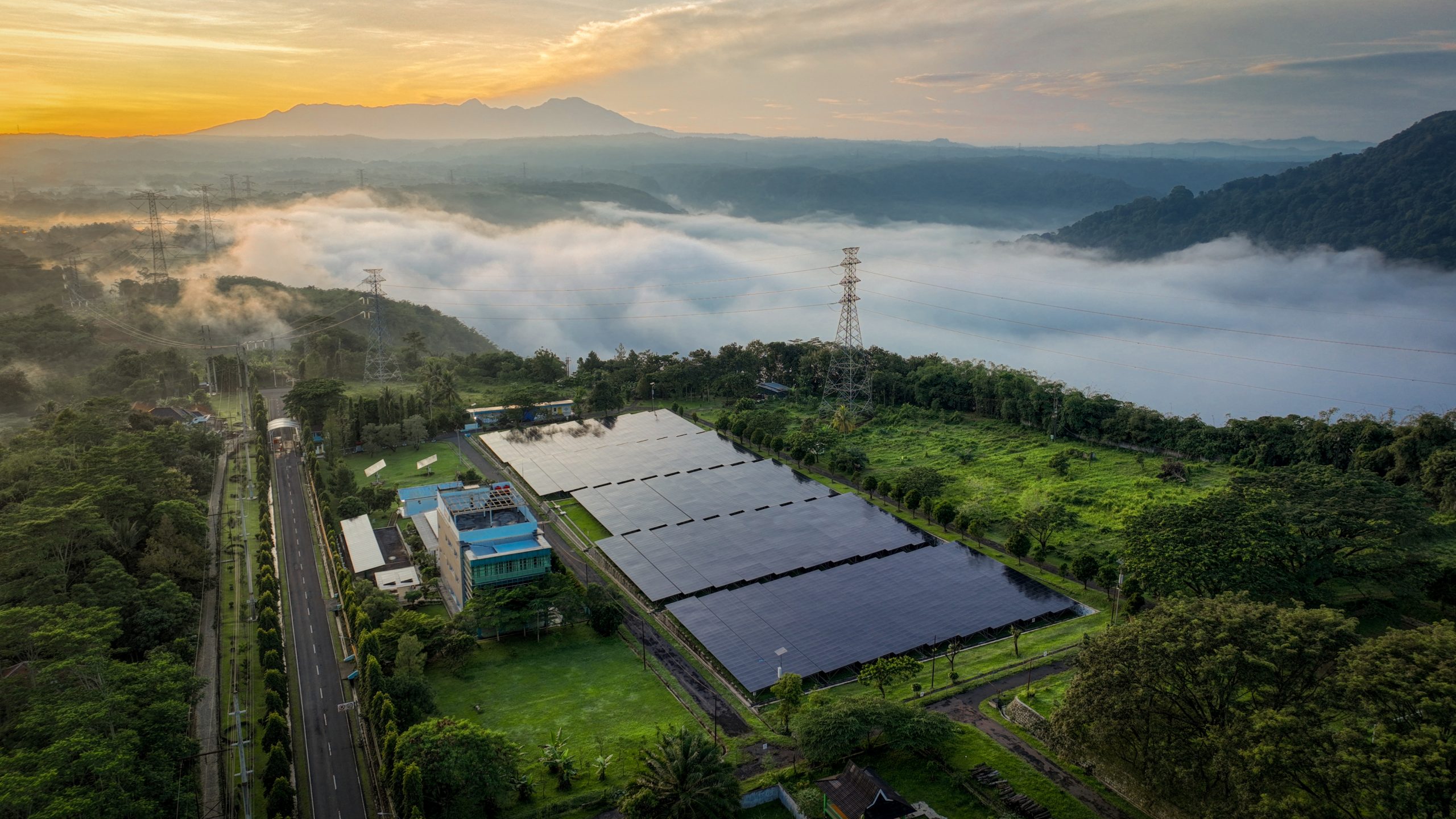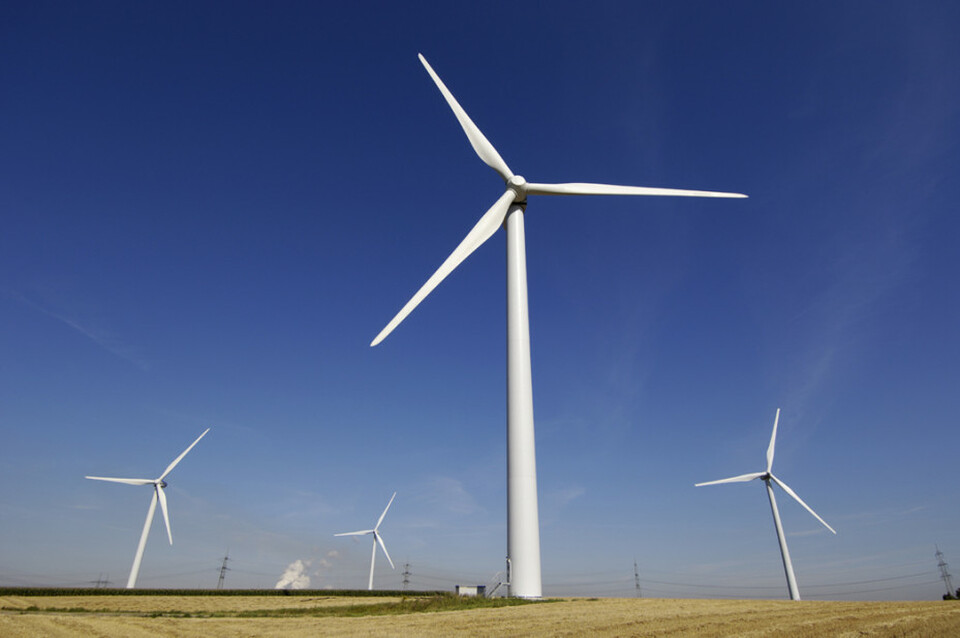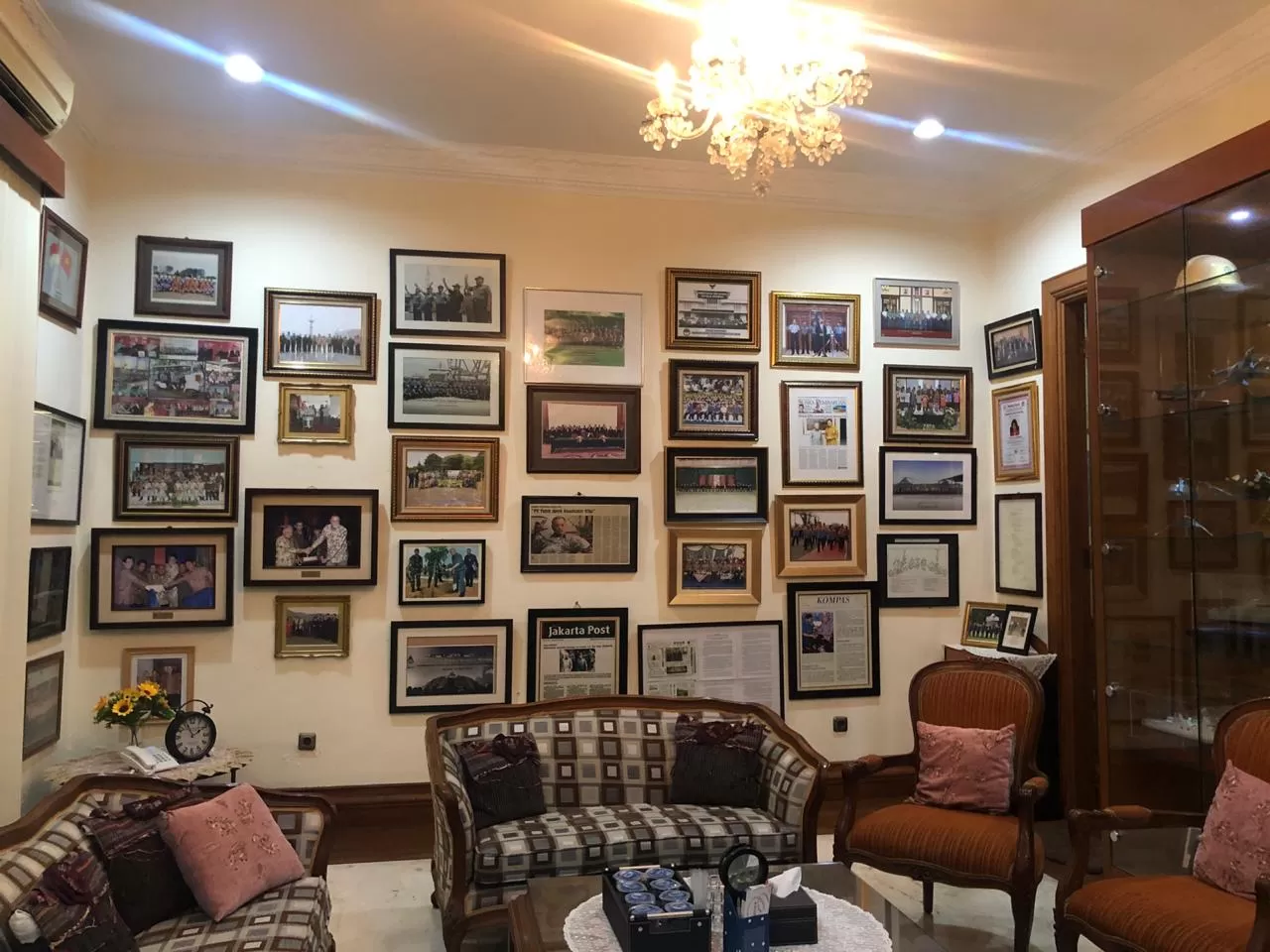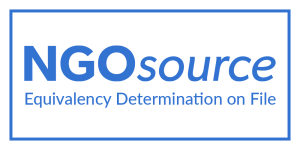Figure 1. The Participants of PYC 3rd Knowledge Sharing Series (KSS) 2018.
On September 26, 2018, PYC conducted its third edition of Knowledge Sharing Series (KSS). The main theme of the event is “MEMR Policy Outlook for Indonesia Energy Sovereignty”. The event itself aims to be a mean of open discussion for practitioners and academics on policies in the energy sector and the various impacts that follow. PYC invited Dr. Herman Darnel, Prof. Hikmahanto Juwana, and Dr. Alexander Wibowo as the speakers, as well as Dr. Ryad Chairil to lead the discussion.
Prof. Hikmahanto Juwana delivered a topic on the management of upstream oil and gas business activities in terms of Indonesian positive law. He started his presentation by talking about the interpretation of “controlled by the state” written in the 3rd sentence in article 33 of the 1945 Constitution of the Republic of Indonesia. Based on the results of his research, there is no single interpretation of the term “controlled by the state”. Interpretation of “controlled by the state” indicates the involvement of the State and must pay attention to non-legal factors, such as level of economic development, the ability of domestic industries, needs of the government, investment climate, etc. Furthermore, he explained about oil and gas management which are based on Law No. 44 of 1960 and Law No. 22 of 2001. He said it will be better if the legal form of Special Task Force Upstream Oil and Gas Business Activities (Satuan Kerja Khusus Pelaksana Kegiatan Usaha Hulu Minyak dan Gas Bumi, SKK Migas) is separated from the state. This is because, legally, the existence of SKK Migas is a working unit of the government, which makes the state has a direct cooperative contract with business actors.
The second speaker, Dr. Herman Darnel addressed Indonesia energy sovereignty from the policy perspective. He highlighted long-term policies and strategies as stated in the Government Regulation No. 79 of 2014 that contains enhancement of energy efficiency and conservation, maximizing the use of clean and renewable energy, minimizing the use of gasoline, optimizing the use of natural gas, coal as the backbone for energy security, and nuclear power as the last option. Currently, the common renewable energy policies that have been implemented in Indonesia are renewable energy share target by setting a target in the national instrument and fiscal policy by implementing import and corporate tax incentives. In 2025, the government targets renewable energy share to achieve 23%, through Presidential Regulation No. 22 on General Planning for National Energy (Rencana Umum Energi Nasional, RUEN), while fiscal policy already exists, however, it is not exclusively applied for renewable energy. Energy Law No. 30 and National Energy Policy (Kebijakan Energi Nasional, KEN) PP No. 79 of 2014 addressed that renewable energy must be prioritized and eligible for the incentive.
Dr. Alexander Wibowo, as the last speaker, delivered the result of his observations regarding the dynamics of energy security of the coal mining sector. Law No. 4 of 2009 was the starting point for the reform of coal management. According to the Law, the contract of work system was replaced by the mining contract system. This changed the national constellation, raised from a civil to power holder. Currently, the challenge faced by the government is to establish the Domestic Market Obligation (DMO), which the government determines the obligation for coal companies to provide supplies for the domestic market. The coal domestic price, which is lower than the international market price, makes coal companies more interested in selling the coal in the international market. In this discussion, Dr. Alex invites to discuss appropriate sanctions to prevent violations of the 20% obligation to domestic.
The discussions run interactively with many diverse questions that were brought up during the discussion.
